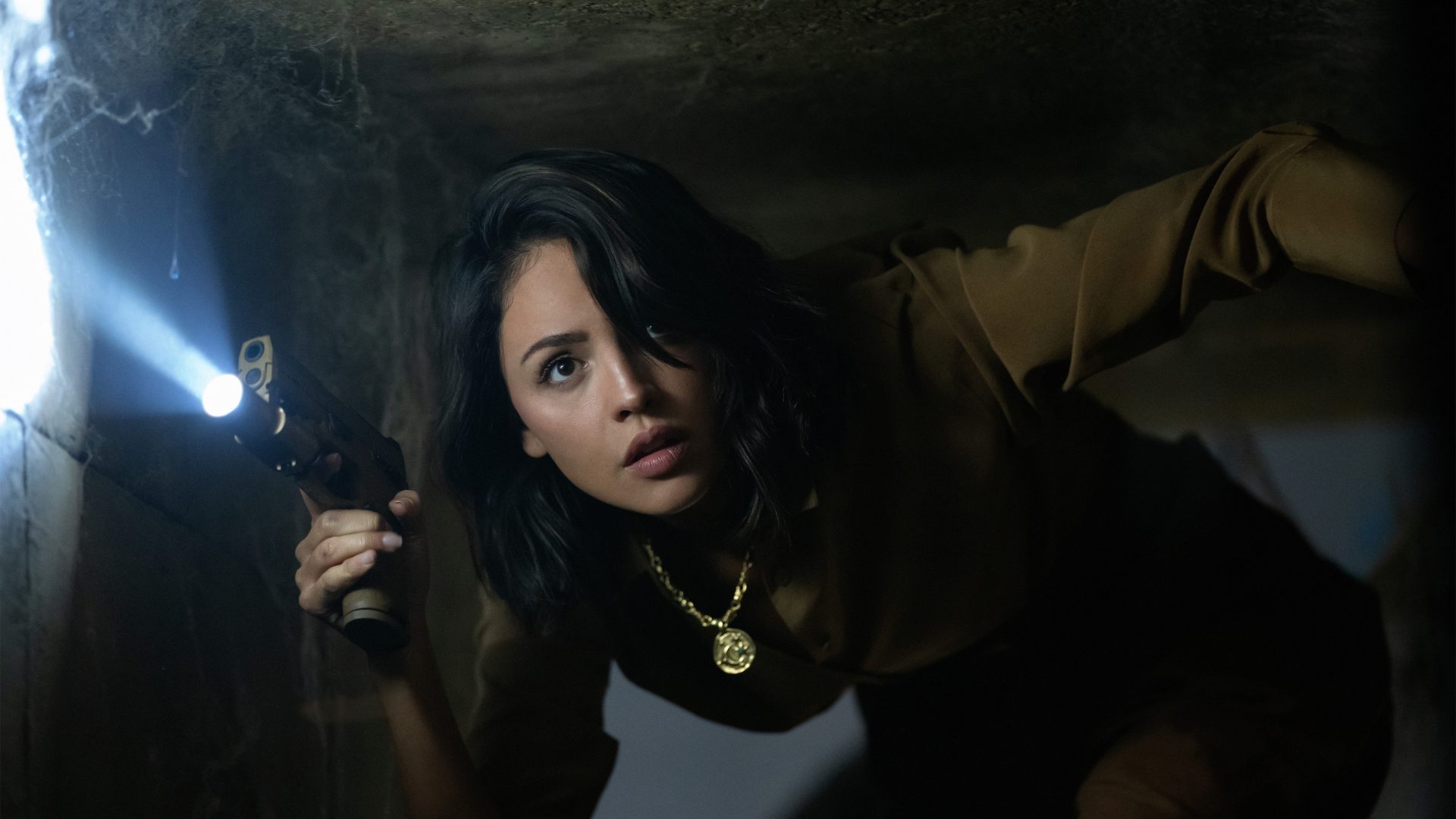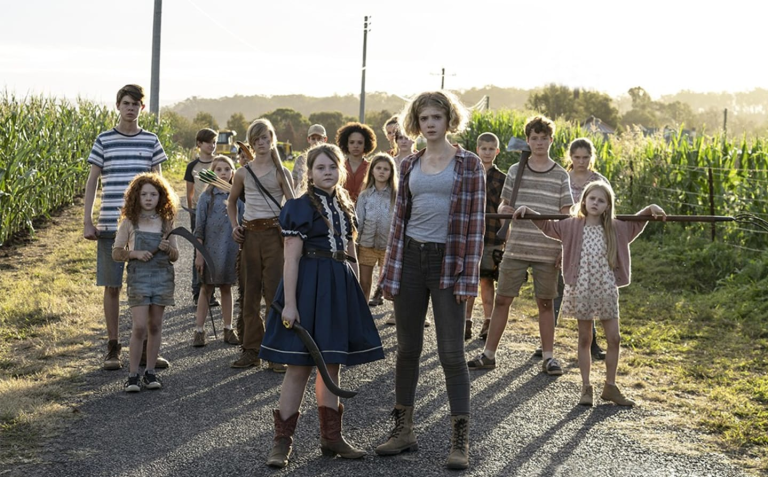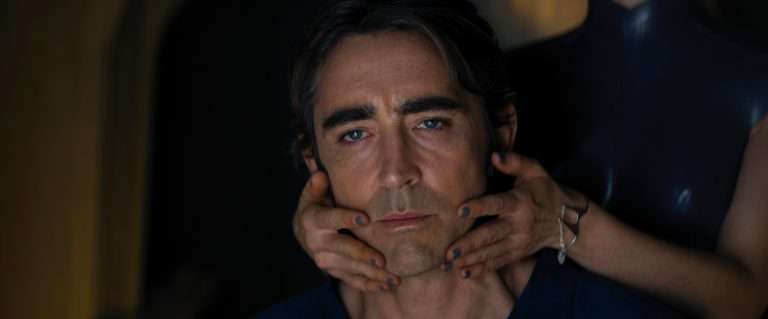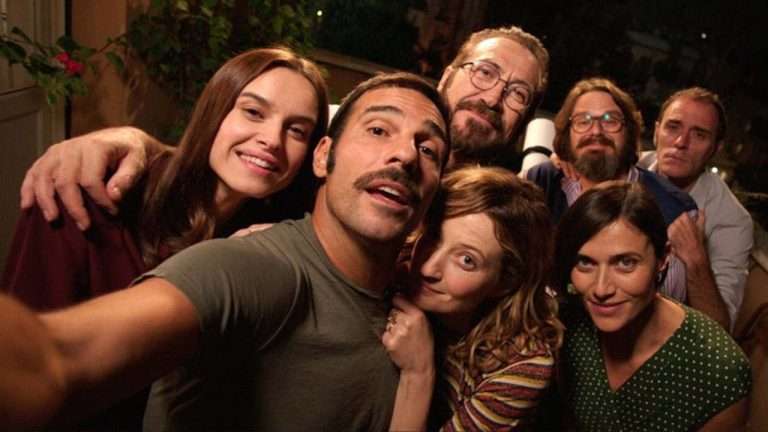Guy Ritchie’s “Fountain of Youth” revolves around the Purdue siblings who reunite a while after drifting apart for some unsurprising reasons. Their father was a known explorer. So, they chose to follow his legacy, but their lives took different turns. Charlotte (Natalie Portman) became an art historian, while her brother Luke (John Krasinski) became an art thief.
She spends her days at a respectable job in an English art gallery while he secures artifacts for his clients. She wants to use her knowledge to help others learn, while he wants it to benefit a select few who hire him. Apart from that, Luke seeks the thrill and the excitement of the act itself. He wants to explore often for the fun of exploration.
That’s essentially the emotional hook for this Guy Ritchie actioner, written by the “Zodiac” scribe James Vanderbilt. Their characters are driven by the pursuit of the unknown for clearly different reasons. Some want it for personal benefit. Others want to preserve its sanctity. Luke mostly wants to enter the heist for the kicks of it.
Charlotte, however, resists because she doesn’t want to get in any trouble. No matter what, their search for the unknown revolves around the chapters of mythology and history. So, the film has a clear case of “Indiana Jones” hangover, which becomes evident even through its promotional material.
It puts these Hollywood stars in carefully coordinated costumes that convey their lust for adventure, especially in the Middle Eastern regions. For them, these places represent a sense of natural mystique, where anything and everything is possible. That leads at least some of the characters to believe that they are on a journey to the sacred Fountain of Youth. It holds immense power beyond human comprehension, which makes it all the more appealing. Ritchie’s film is mainly about this sense of allure that Steven Spielberg’s adventure films are known for. They capture a sense of wonder that kids are usually drawn to.

Yet, one thing that has often been a point of contention about Indiana Jones’ adventures. They were always stuck in a good vs. evil dichotomy where the audience rooted for Indiana simply because he represented the good guy in this story. So, they wanted to see him succeed by the end of the heist.
Still, just because he stood against the absolutely reprehensible Nazis does not absolve him from any introspection about his actions. There are many times when he did things simply for the thrill of it or because an authority figure told him to do so. However, was he saving history or stealing it? I’m sure it’s not just me and some NPR journalists thinking about this moral ambiguity.
Also Read: Why Guy Ritchie Is Above His Mediocre Filmography?
“Fountain of Youth” tries to find a way out of this rigid dichotomy. It introduces Luke as almost an adrenaline junkie, who gets hired by billionaire Owen Carver (Domhnall Gleeson). Usually, that B-word in itself serves as a warning. For Luke, that’s not the case. He trusts Owen in his quest for the elusive object that can offer its owner the power to be invincible. Luke assumes Owen wants it just to heal himself from a terminal disease. Either that or it seems like a great excuse to bond with his estranged sister over some history lessons.
Beyond these emotional threads, Owen’s mission sounds eerily similar to the final chapter of “Mission: Impossible” where Ethan Hunt and his team try to find a similar ‘entity’ to stop it from getting into the wrong hands. They understand the cataclysmic consequences that might follow otherwise. In Apple’s film, that part of the mission is not as thoroughly explored or implied. However, it resorts to clarifying every single aspect of its mission to the point that it becomes mind-numbing and borderline insufferable.
Usually, Guy Ritchie’s films stand out because of their entertaining banter. His characters often end up in seemingly endless back-and-forths that rarely serve a larger purpose or have subtext. So, even a mindless repetition of dialogue fits into his style. That’s not the case with “Foundation of Youth,” which uses banter to rather just serve its subtext on a platter.

It constantly panders to this spoon-feeding attempt to the point that even someone as talented as Natalie Portman is left to be simply an expositional device in the script. Her character is just a woman trying to protect her son while her brother looks for the big prize. Of course, she is the most intelligent person in any room she walks into, but the script uses her intelligence mostly to share trivia, leaving no emotional depth to her character or a semblance of a personality. Even if we are to consider the film’s desire to be a lighthearted adventure, the ‘fun’ gets lost in its redundant and oftentimes wooden dialogue.
Guy Ritchie still pulls off some exciting action sequences and some jaw-droppingly gorgeous ones throughout the runtime, especially when his direction is allowed to be more human and to rely on an underlying emotion rather than being just a book of facts. Overall, “Foundation of Youth” becomes a pretty-looking but unremarkable adventure where its moral lesson gets muddied by its lifeless approach.




![The Last Film Show [2021] ‘Tribeca’ Review: A Bright, Starry-Eyed Film About Storytelling and Living Your Dreams](https://79468c92.delivery.rocketcdn.me/wp-content/uploads/2021/06/The-Last-Film-Show-1.jpg)
![The Assassination of Jesse James by the Coward Robert Ford [2007] Review: A Tale of Fame & Infamy](https://79468c92.delivery.rocketcdn.me/wp-content/uploads/2018/10/jesse-james-2-768x432.jpg)
![Savage [2019]: ‘NYAFF’ Review – A Visually Spectacular Thriller Drama](https://79468c92.delivery.rocketcdn.me/wp-content/uploads/2019/06/Savage-2019-high-on-films-768x398.jpg)

